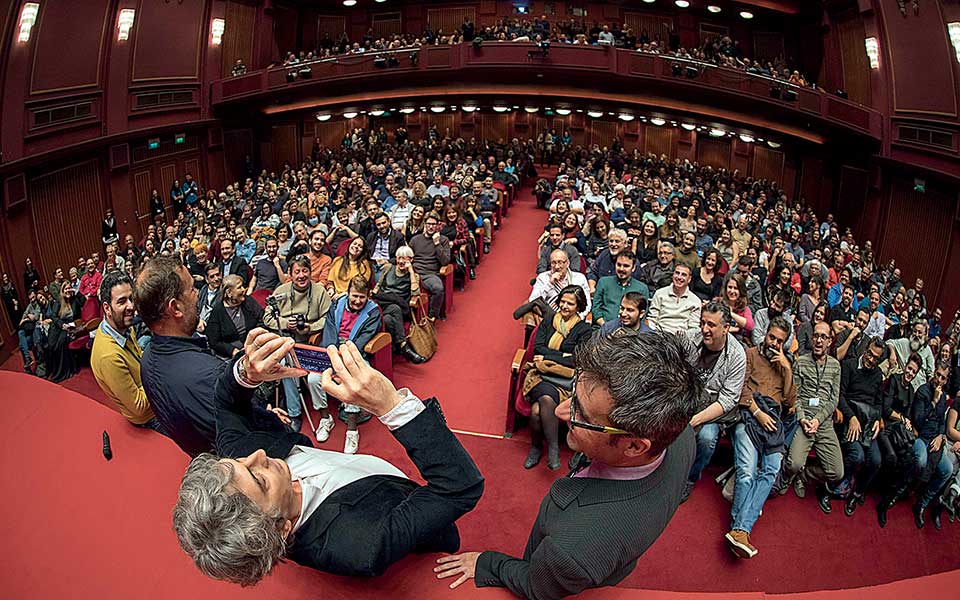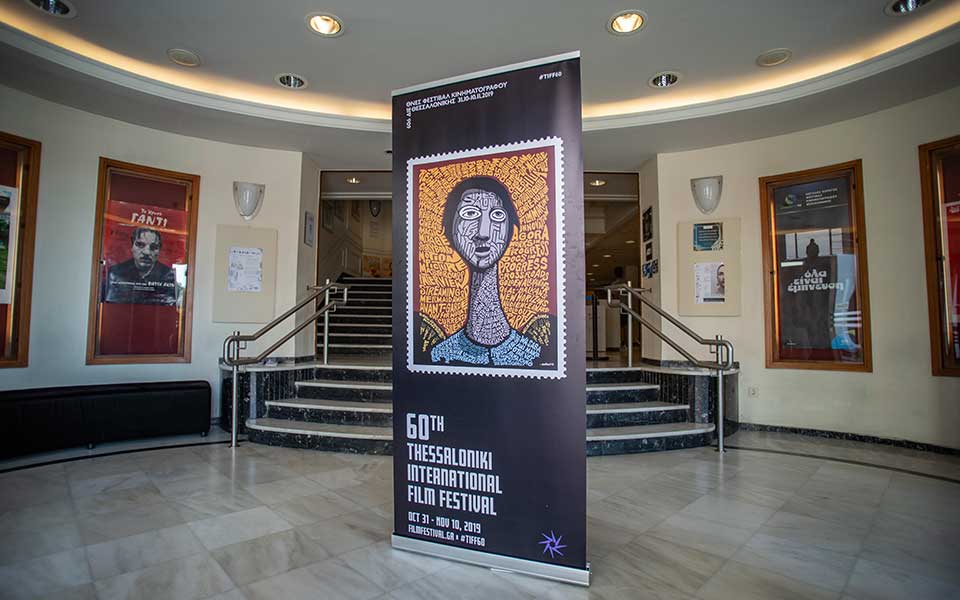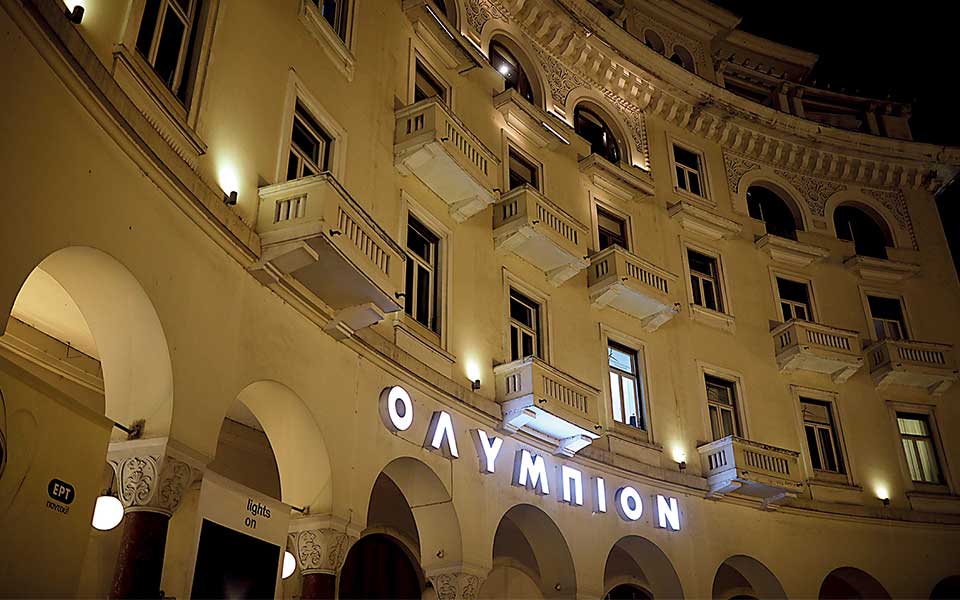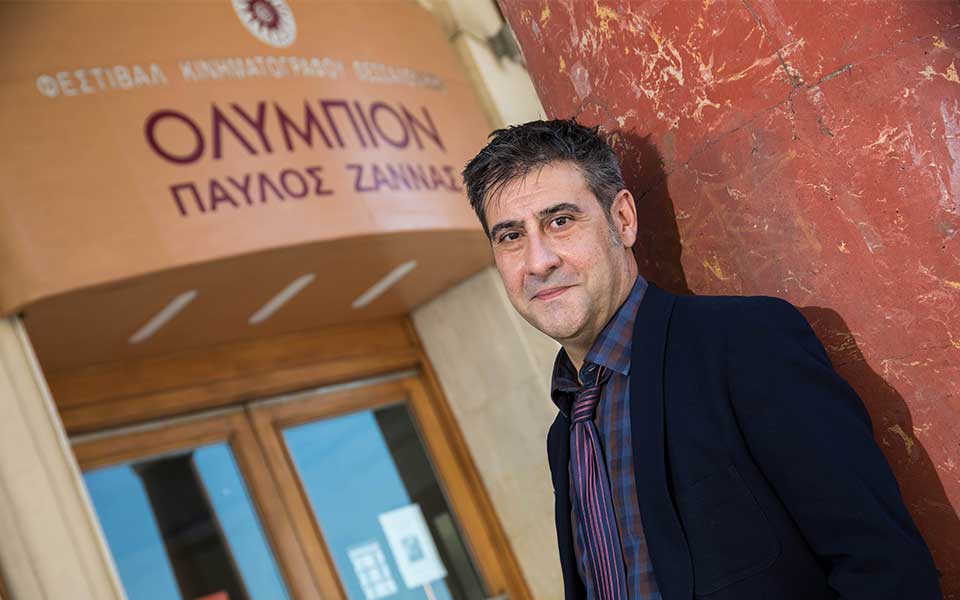What Ιs a “Koutouki”?
A Thessaloniki expert selects 13 spots...

Alexander Payne snaps a photo before the screening of his film “Downsizing” in 2017. With him are Orestis Andreadakis and cinematographer Phedon Papamichael.
© Thessaloniki Film Festival Archive
I am meeting with Orestis Andreadakis, artistic director of the Thessaloniki International Film Festival (TIFF), amid a flurry of creative, or rather, anniversary-induced panic just a few days after the open screening of Giuseppe Tornatore’s “Cinema Paradiso” in Aristotelous Square.
“We brought in 2,000 seats and it was crazy,” he tells me. The historic square was transformed into an open-air movie theater for a novel cinematic experience that demonstrated the inseparable bond between the institution and the city.
“In addition to locals, we also had many tourists. The city and its people are the heart of the festival. It’s a huge celebration that begins in the theaters and culminates in the bars and restaurants of Thessaloniki, where you’ll meet cinephiles from all over the world,” he says.
Andreadakis was appointed TIFF’s artistic director in 2016. “My primary goal was to make it an integral part of life in the city,” he says, “as well as a place where directors and producers can meet and promote their work to distributors, buyers, sales agents and festival representatives from all over the world.”
With a year-round presence, the festival has succeeded in contributing significantly to tourism and education as well as to the city’s culture scene.
“It’s not just the big event in November,” Andreadakis says. “It’s also the Documentary Festival in March each year; it’s the Olympion movie theater, which screens important films all year round; it’s the Cinema Museum in the port; it’s a series of educational and other initiatives. We’re talking about a tireless cultural engine.”

One of the posters designed for the 60th TIFF by the famous illustrator John Mavroudis.
© Nicolas Economou
For this year’s 60th anniversary, it was decided to take a look at the past – not necessarily in a nostalgic way – while at the same time looking boldly to the future. “We decided that in addition to good cinema, we would share with the city historical photographs of the event. Rare photos from the 1960s to the present will be displayed in establishments and venues all over Thessaloniki, from butcher shops and bars to hotels and boutiques.”
Such pictures will take people back to 1982, when the then Culture Minister Melina Mercouri and the ministry official responsible for cinema, Manos Zacharias, stood beside American film director Jules Dassin on the balcony of the Society for Macedonian Studies, which was the venue for the festival’s official screenings.
“Images will also remind people of the outstanding Iranian film director Abbas Kiarostami, and the special tribute to his work at the 45th festival,” Andreadakis says. “Or you’ll see internationally acclaimed Greek filmmaker Theo Angelopoulos, who served as a successful festival president for a number of years, enjoying a good laugh with Willem Dafoe in the year that Theo presented ‘The Dust of Time’ at the festival. And we’ll also be going back to the 46th Festival, to see Francis Ford Coppola receive an honorary Golden Alexander award for his contribution to cinema.”
Over six decades, the festival has brought together diverse genres, celebrating everything from the neorealism of Greek auteur Nikos Koundouros to the achievements of Filopimin Finos (the “patriarch” of commercial Greek cinema, who somehow managed to produce 187 films); the independent movies of America’s Jim Jarmusch; Greek queer cinema; and virtual reality films.

The façade of the historic Olympion Cinema.
© Konstantinos Tsakalidis

Orestis Andreadakis
“This year we wanted to look to the future with optimism. So we turned to people who – through their work – speak about what is to come. This is the thinking, for example, behind the tribute to Spain’s Albert Serra and Britain’s Joanna Hogg, two film directors who may not be well known in Greece, but who are highly respected. It’s also the reason for the presence of John Waters, whose work has often delivered scathing criticisms of society, politics and the aesthetics we embrace. Even the festival’s poster, designed by award-winning Greek-American illustrator John Mavroudis, widely known for his politically charged covers for Time Magazine and The New Yorker, stems from this.”
Among this year’s highlights is an exhibition of the little-known artwork of Nikos Koundouros, a tribute to the experimental cinema of Gregory Markopoulos and Robert Beavers, and something called “Growing Up in the ‘80s,” a look at important films of this misunderstood decade, as selected by Greek director and musician Alexander Voulgaris, aka The Boy.
“The festival knows how to connect the Thermaic Gulf with world cinema,” notes Andreadakis, explaining that this year will also feature a strong Greek presence. He expresses his desire to reach out to and educate the younger generation as well. “We’re living at a time when the cinematic product is changing; people are watching films on laptops and less and less in theaters. The challenge for the future is to educate young audiences in the art of cinema, and to ensure that the festival remains competitive in relation to similar events abroad.”
Andreadakis believes the festival has been and can continue to be an ambassador for Greek culture abroad. “It can help the country regain the standing it lost because of the crisis,” he says. “Things are already much more positive. The Greek presence abroad is astonishing. You see Greeks every year at the biggest festivals, from Venice and Cannes to Berlin. The fact that Yorgos Lanthimos and Panos Koutras were both jury members at Cannes this year says it all. A legendary festival considers Greek artists to be quite capable of judging world cinema. And this is why I say that the role of our festival is to continue promoting Greek creative expression.”
60th Thessaloniki International Film Festival.
From 31/10 to 10/11/2019.
For program details, visit filmfestival.gr
Born in Irakleio, Crete, in 1963, Orestis Andreadakis studied French literature, art and film theory in France and Switzerland, before working as a film critic for leading Greek media outlets. In 1995, he helped found the Athens International Film Festival “Opening Nights” and later served as its artistic director. In 2013, the French government named him a Chevalier de l’Ordre des Arts et des Lettres for his contribution to cinema.
A Thessaloniki expert selects 13 spots...
Major infrastructure projects, a significant urban...
From historic landmarks to edgy street...
This short walk takes in eleven...